
Our vision:
A safe and healthy Kitsap County for all.
Waste Handling A to Z


The Pollution Prevention Assistance (PPA) program provides free hands-on assistance to Small Quantity Generators (usually small businesses) who want to learn how to handle their hazardous waste safely and help prevent polluting their community.
Through the PPA program, Kitsap Public Health offers free technical assistance to local small businesses to help reduce or eliminate hazardous waste. A specialist can meet with your business to evaluate procedures and practices and help solve any hazardous waste issues.
If a business makes changes based on our recommendations, we can reimburse the costs of those changes with a voucher of up to $500.
Call us at 360-728-2235 to learn more!
Our Pollution Prevention Specialists Can...
Review your spill prevention plans.
Help you implement best practices for dangerous waste storage and disposal.
Explain hazardous waste regulations that apply to your business.
Help you locate recycling or disposal resources for hazardous waste.
Provide no-charge equipment such as secondary containment pallets, spill kits, and drum covers.
What's a Small Quantity Generator?
Most businesses in Washington generate some amount of hazardous waste. If your business is a Small Quantity Generator, there are special rules you need to follow.
By Taking Steps to Prevent Pollution, You Can...
Avoid contamination of local streams and the Puget Sound
Protect the health and safety of your employees
Increase efficiency and reduce cost
Comply with regulations and avoid fines
Reduce liabilities
Get recognized for your efforts
Appliances
Abandoned appliances can leak harmful substances into the ground, while also providing shelter for rats and mice. Children can accidentally lock themselves in refrigerators and suffocate. It’s easy to get rid of these items. You can find used appliance drop off locations throughout Kitsap County.
Asbestos
Material that contains asbestos must be properly handled to prevent causing fatal illness.
FOR YOUR SAFETY
Contact the Puget Sound Clean Air Agency for help with removing and disposing of asbestos. All asbestos-containing material must be disposed of at a special facility. For your safety, you must wet asbestos-containing material during removal to reduce your risk of breathing in its particles. You must seal asbestos waste in leak-tight containers, or put it in several layers of plastic bags with a combined thickness of six millimeters or more. You must label the bag or other container as containing asbestos.
Business & Commercial Waste
Many businesses in Washington generate some type of dangerous waste — waste that is harmful to human health and the environment.
Services are available to help your business reduce waste! If you own a small business, you may be eligible for our Pollution Prevention Assistance (PPA) program. The Department of Ecology also offers assistance for larger organizations.
When you reduce hazardous waste or eliminate it altogether, you can save money by reducing staff time spent on waste management and and by reducing expensive disposal costs.
In addition to saving money, your business can also benefit by:
Getting more customers. Many consumers looks for businesses that care about their environment.
Saving taxpayers money. Government resources spent on hazardous waste can be redirected to businesses assistance and education.
Working in a safer community. Less hazardous products and wastes mean less potential exposure from waste handling and spills.
Questions? We're here to help! Call us at 360-728-2235.
Construction Debris
Construction and demolition waste is usually okay for salvage or for recycling. Some drop-box locations will accept certain types of construction and demolition waste for recycling. Other disposal and recycling options for construction waste can be found at Recycling in Kitsap County.
Compost
Commercial composting regulations can be very complicated. Call us at 360-728-2235 for help understanding your specific composting requirements.
More resources:
Contaminated Sites
We assess the risks to public health and our environment from known or suspected contaminated sites in Kitsap County.
Sites can become contaminated through spills, leaks, and illegal dumping. Some sites become contaminated through current bad practices, and some are the result of poor practices that happened many years ago.
Typical sites in Kitsap County include some abandoned landfills, auto wrecking yards, leaking underground storage tank sites or former bulk fuel storage facilities.
The Department of Ecology (DOE) asks us to assess sites whenever they receive a report of a hazardous spill from the public. We investigate and determine what level of risk the site poses to public health and the environment. DOE then works with the site owners to clean up the site, beginning with the highest risk site first.
List of Kitsap County contaminated landfills | Kitsap Public Health
Drug Contaminated Properties
Indoor methamphetamine or fentanyl use may leave harmful residue. While there is no legal standard for fentanyl contamination, meth contamination above the legal limit results in an Unfit for Use Order and required cleanup oversight.
We offer assistance with regulations, approved cleanup contractors, and oversight to ensure compliance. For details, visit our Drug Contamination page or call us at 360-728-2235.
Key Regulations:
WAC 246-205 – Decontamination of illegal drug sites
RCW 64.44 – Contaminated properties
KCBOH Ordinance 2005-7 – Drug site decontamination
Electronic Equipment
E-Cycle Washington is a free program that makes it easy for Washington residents to recycle certain broken, obsolete, or worn-out electronics.
Hazardous Waste Collections Site
The Kitsap County Household Hazardous Waste Collection Facility accepts hazardous waste from households and some businesses. For more information, call 360-337-5777.
Heating Oil Tanks
Leaky oil tanks can pollute your yard or seep into your basement, causing health issues and making it difficult to sell your home. Learn how to identify the problems now — and prevent them in the future.
Household Garbage & Other Waste
Your household garbage must be stored in a leak-proof, rodent-proof container. It has to be collected often enough so it does not cause a nuisance, such as unsightly piles of garbage, odor, or the presence of rats and other animals. In Kitsap County, you can either self-haul to a Recycling and Garbage Facility or have your household garbage collected curbside. Some cities have mandatory curbside collection.
Learn more about local garbage collection and recycling services.
If you need curbside collection to dispose of waste that will not fit in your garbage can, such as a mattress, furniture, or a few boxes of household items, contact your regular waste hauler. The haulers who have exclusive contracts for residential curbside collection in our county are:
City of Poulsbo | City of Poulsbo Public Works 360-779-4078 (Monday - Friday 8 a.m. to 4:30 p.m.)
City of Bremerton | Waste Management 1-800-592-9995 (Monday - Friday, 7 a.m. - 5 p.m.; Saturday, 9 a.m. - 1 p.m.)
Unincorporated Kitsap County | Waste Management 1-800-592-9995 (Monday – Friday, 7 a.m. – 5 p. m.; Saturday, 9 a.m. – 1 p.m.)
City of Port Orchard | Waste Management 1-800-592-9995 (Monday - Friday, 7 a.m. – 5 p.m.; Saturday, 9 a.m. - 1 p.m.)
City of Bainbridge Island | Bainbridge Disposal 206-842-4882 (Monday - Friday, 8 a.m. - 4 p.m.)
If you need clean-up services, such as demolition for a remodel, or cleaning out a garage, basement or attic, you may use special haulers called site restorations haulers.
A list of all certified waste haulers in Kitsap County is available online.
Household Hazards
Before you toss something in the garbage, make sure it's safe! A lot of household items can be hazardous, such as:
Garden supplies
Paint
Cleaning supplies
Batteries
Fluorescent light bulbs
Unused medications or medical supplies
Sharps
And more!
Visit Kitsap County's Household Hazardous Waste Collection Facility webpage to learn more about disposing these household items.
Questions? Call us at 360-728-2235.
Medicines and Medical Supplies / Syringes and Needles
Unused, unwanted, or expired medication in your home can be a risk to you, your family, and your community.
Substance use: The home medicine cabinet is one of the most common places people go when looking to use substances.
Accidental poisoning: Young children can be poisoned by accidentally eating medications.
Pollution: Medication pollutes our water and soil when it's flushed down the toilet or thrown into the garbage.
You can safely get rid of medicine you don't need by taking medication to a drop-box location. Many pharmacies, clinics, hospitals and law enforcement offices accept most medicines for disposal. You can also request to mail unused medications.
There is no cost to residents to use this service.
Medical sharps (such as insulin syringes or blood-testing lancets) are not accepted at these kiosks. If you use sharps, get rid of them safely so others won't be hurt.
Watch this quick tutorial or download this guide to learn how to safely throw away sharps.
If you find a needle in a public place, do not pick it up. Call us at 360-728-2235 and we can send someone to retrieve it.
Outdoor Burning
When you burn certain items, the smoke can carry dangerous chemicals that can hurt our lungs and make us sick.
Any smoke from outdoor burning can cause problems for people with asthma or other breathing problems. Kitsap County has rules about what can and cannot be burned out of doors.
It is illegal to burn trash anywhere in Kitsap County.
Outdoor burning of natural vegetative wastes is allowed only in certain areas with a fire department permit. Contact your local fire department before you burn.
Pet Waste
Pet waste (cat and dog poop) that remains on the ground pollutes our soil and water.
Kitsap County requires you to dispose of your pet waste using one of these methods:
Place pet waste and litter into a plastic bag (double-bagging is best), and put it in your garbage can. Never flush it down the toilet.
Bury your pet's waste. You can do this only if there is a small amount of waste and you scatter the waste in different places in your yard. Don’t bury it near child play areas, your drinking water well, septic system drainfield, or other places where you or your family might accidentally come into contact with it.
Never put pet waste in a storm sewer.
Do not compost your pet's waste at home. Home composting will not destroy the bacteria in cat or dog poop and can make humans sick.
Always take along a plastic bag when walking your dog so you can clean up dog poop immediately. If you don't have a bag, look for a dog waste station.
Resource
Rats, Mice and Other Pests
Rats and mice are considered hazards because they can carry diseases that can make people and their pets sick. Some of the more common diseases caused by rats and mice are bubonic plague, typhus, tularemia, and hantavirus.
Rodents tend to live under wood piles, bushes, under buildings, and in garbage. They can also live in your house: in the walls, crawl spaces, under cupboards, in attics, and near your hot water heater and furnace.
The best way to keep these pests out of your home or yard is to take away their food, water, and shelter.
Sources of food for rodents
Garbage left uncovered or in garbage cans without rodent-proof lids
Uneaten pet food in the house or outside
Birdseed on the ground
Fruits and berries that have fallen on the ground
Dog poop in the yard
Any human food out or spilled in the house
Grains, such as cereal, oats, rice, and vegetables (especially potatoes and carrots) that are not stored in rodent-proof containers.
How to help protect your home
Seal all openings to your house that are one inch or larger, including the foundation of your house.
Clean up piles of wood, yard waste, rocks, and anything that could give a rodent a home.
Remove or trim overgrown plants.
Use traps, not poison
Using rat poison can be dangerous. Children and household pets are at risk of eating the poison by mistake. Poisoned rodents may die in a place you cannot reach and will decay in your home, attracting more pests and causing a bad smell. Trapping is safer.
Use wooden rat traps.
Bait the trap with apple, potato, raw bacon, or peanut butter on a cotton ball.
Firmly attach the trap to the ground to keep it from being moved.
Place the trap near where you have seen rats or rat poop.
Make sure the trap is safely away from children and pets.
When a rodent has been trapped, wear gloves to remove the rodent. Put it in a sealed bag and put it in the garbage. Wash your hands thoroughly with soap and water.
Recycling
Stumped with a recycling problem or waste you don’t know what to do with? Find a list of where to recycle, dispose or donate items online.



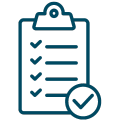
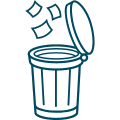

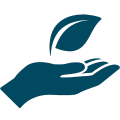
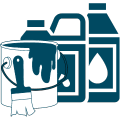
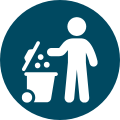
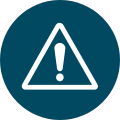

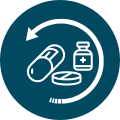
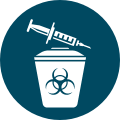
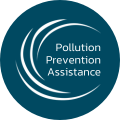
.png)
